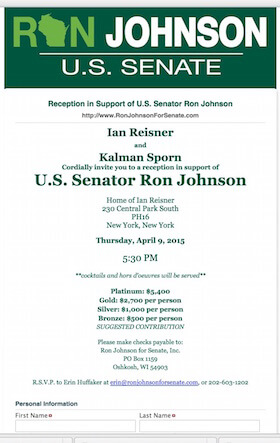Faced with nearly unremitting opposition from congressional Republicans, President Barack Obama has, in the past couple of years and even more so in recent days, spoken about moving his agenda forward through the issuance of executive orders and other administrative actions.
In perhaps the most dramatic example of that approach, the president used his State of the Union Address last week to underscore his commitment to get around GOP roadblocks against a minimum wage increase by issuing an order that contractors doing business with the federal government must pay their employees at least $10.10 per hour. Currently, the federal minimum wage is only $7.25.
In an economy that has experienced a steady widening of the gap between society’s richest and poorest, the president’s actions represent a commendable show of leadership.
But his willingness to enforce a minimum wage on federal contractors makes his continued failure to enforce on that very same class of companies requirements that they abide by nondiscrimination practices when it comes to sexual orientation and gender identity all the more difficult to understand.
On repeated occasions, the administration’s response to questions about a nondiscrimination executive order has consisted of simply pointing to Obama’s support for the Employment Non-Discrimination Act (ENDA). In fact, in a recent exchange with the Washington Blade’s Chris Johnson, who has done exemplary work in bringing this issue up at White House briefings, press secretary Jay Carney was more than a bit petulant, saying, “Chris, you know, we’ve talked about this a lot” — “this” being something Carney insisted on dismissing as “a hypothetical executive order for LGBT non-discrimination for federal contractors.” An executive order, Carney said “was the wrong approach.” [Editor's note: In an email message following publication of this editorial, the White House press office said Carney was not referring to the executive order when using the phrase “wrong approach.” See this story for further details.]
But if that’s the wrong approach, it’s hard to discern the advantages of the administration’s approach — continuing to push for ENDA, which the Republican leadership in the House has made clear it has no intention of moving on. In fact, the Blade also reported, Speaker John Boehner recently told members of the House LGBT Equality Caucus that there was “no way” the measure, approved for the first time by the Senate — after more than 20 years — in November, would get a floor vote in the House this year.
Clearly, Republican intransigence on LGBT jobs protections is at least as great as their opposition to raising the minimum wage. And the president can address both issues in precisely the same way, by enforcing a mandate on those who wish to profit by doing business with the federal government.
That group is far from all companies, of course, but the breadth of businesses that are federal contractors means that such executive action can have profound influence on what the overall environment is for LGBT employees nationwide. Increasingly, in order to be competitive in the labor market, even companies that don’t do business with the federal government will see the wisdom in adopting workplace fairness guidelines.
Currently, 29 states offer no private sector employment protections for LGBT workers — and lest anyone think that New York has surmounted that hurdle, it should be remembered that the Empire State is among another six that offer protections based only on sexual orientation, not gender identity.
In 2012, Tico Almeida, who as founder of Freedom to Work is among the strongest proponents of a presidential executive order, pressed the administration hard on this issue as Obama campaigned for reelection. Many gay voters, however, largely focused on the president’s embrace that May of marriage equality. Even advocates working alongside Almeida to see an executive order become a reality thought that action was more likely in a second term and so were willing to give Obama time.
The time for patience is over — in fact, it was a long time ago.
With Democrats widely expected to fall short in their hopes of regaining the House this November, there is a very good chance that Obama will never have the opportunity to sign ENDA into law. But as with an executive order on the minimum wage, the president can achieve a lot with the stroke of the pen. In an interview with Bloomberg News, John Podesta, recently named a White House counselor, broke with the administration’s pattern of dodging the issue, saying a nondiscrimination executive order “is under consideration at the White House. We're looking at that.” Let’s hope that on this one, it is Podesta and not Carney who speaks for the president.

































